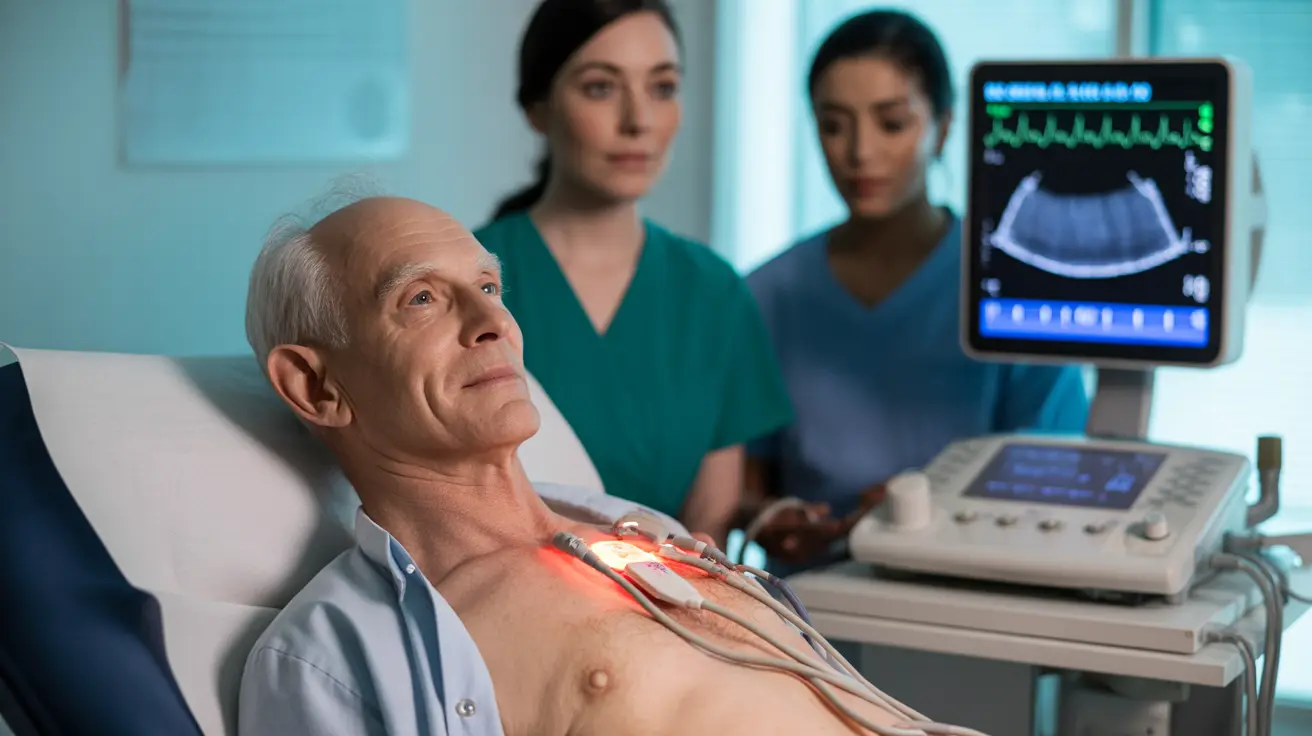For elderly patients with suspected heart problems, nuclear stress tests are valuable diagnostic tools that help doctors evaluate heart function and blood flow. However, many seniors and their families have concerns about the safety and potential dangers of nuclear stress tests. Understanding the risks, benefits, and safety measures can help you make an informed decision about this important cardiac diagnostic procedure.
In this comprehensive guide, we'll explore the safety considerations, potential risks, and essential precautions for elderly patients undergoing nuclear stress tests, helping you better understand what to expect from this cardiac imaging procedure.
Understanding Nuclear Stress Tests for Elderly Patients
A nuclear stress test combines exercise or medication-induced stress with radioactive imaging to evaluate blood flow to the heart. This specialized cardiac test provides detailed information about heart function and can identify coronary artery disease, which is particularly common in older adults.
Safety Considerations and Risk Factors
Radiation Exposure
While nuclear stress tests do involve exposure to radioactive materials, the radiation dose is carefully controlled and monitored. The amount of radiation exposure is comparable to what you might receive from certain natural sources over several months to a year. Medical professionals carefully calculate the minimum dose needed based on factors like age, weight, and overall health status.
Physical Stress Considerations
For elderly patients who cannot exercise, medical professionals may use medications like adenosine or regadenoson to simulate the effects of physical stress on the heart. These medications are generally safe but can cause temporary side effects such as:
- Chest discomfort
- Shortness of breath
- Headache
- Dizziness
- Nausea
When Nuclear Stress Tests May Not Be Appropriate
Certain conditions may make nuclear stress tests unsuitable for some elderly patients:
- Severe asthma or respiratory problems
- Unstable angina
- Severe heart rhythm abnormalities
- Recent heart attack
- Certain medication interactions
Benefits of Nuclear Stress Tests for Seniors
Despite potential concerns, nuclear stress tests offer several important advantages for elderly patients:
- More accurate diagnosis of coronary artery disease
- Better evaluation of heart function
- Help in determining appropriate treatment plans
- Non-invasive alternative to other cardiac procedures
Safety Protocols and Risk Minimization
Healthcare providers implement numerous safety measures during nuclear stress tests:
- Continuous monitoring of vital signs
- Immediate access to emergency equipment
- Careful screening of medical history
- Individualized dosing of radioactive materials
- Expert supervision throughout the procedure
Frequently Asked Questions
What are the potential dangers and side effects of a nuclear stress test in elderly patients?
The main potential side effects include temporary chest discomfort, shortness of breath, irregular heartbeat, and mild nausea. While rare, more serious complications can occur, particularly in patients with severe heart conditions. Healthcare providers carefully screen patients to minimize these risks.
How much radiation does a nuclear stress test expose me to, and is it safe for older adults?
The radiation exposure from a nuclear stress test is carefully controlled and considered safe for most older adults. The amount is comparable to what you might naturally experience over several months to a year. The benefits of accurate cardiac diagnosis typically outweigh the minimal radiation risk.
When should elderly patients avoid having a nuclear stress test?
Elderly patients should avoid nuclear stress tests if they have severe asthma, unstable angina, recent heart attack, certain arrhythmias, or specific medication contraindications. Your doctor will carefully evaluate your medical history to determine if alternative testing methods would be more appropriate.
How does a nuclear stress test help in diagnosing heart problems in older adults?
Nuclear stress tests provide detailed images of blood flow to the heart, helping doctors identify coronary artery disease, evaluate heart function, and assess damage from previous heart attacks. This information is crucial for developing effective treatment plans for elderly patients with heart conditions.
What precautions are taken to minimize risks during and after a nuclear stress test?
Medical teams implement comprehensive safety measures including continuous vital sign monitoring, emergency equipment readiness, careful medication dosing, and expert supervision throughout the procedure. After the test, patients are monitored until the effects of any medications wear off and are given specific instructions for post-test care.




